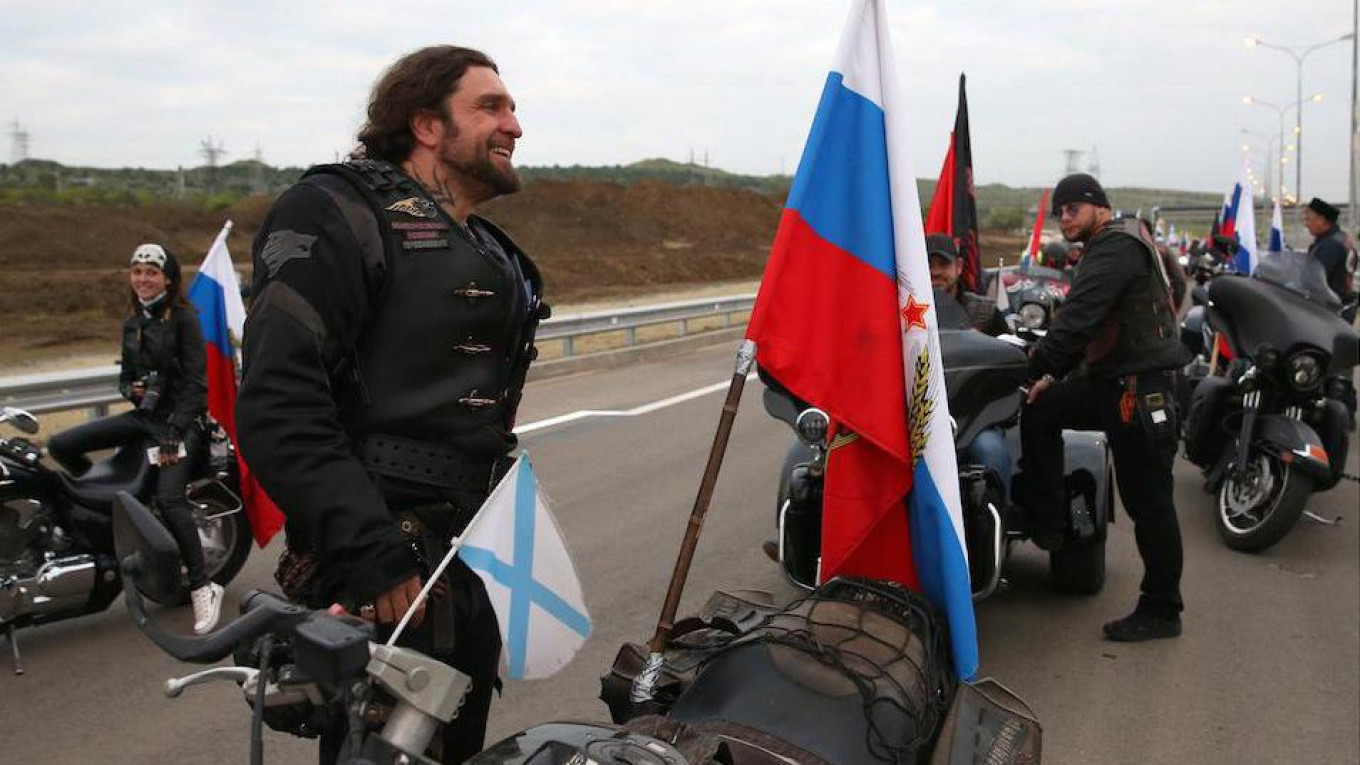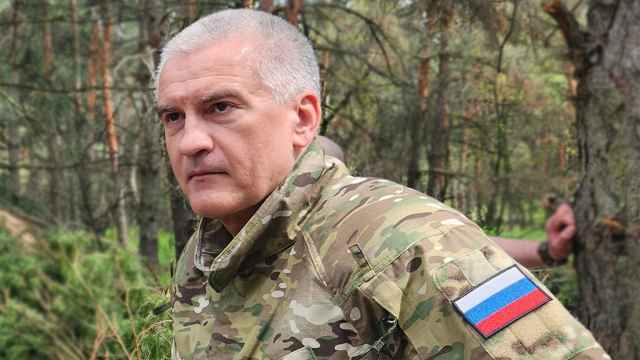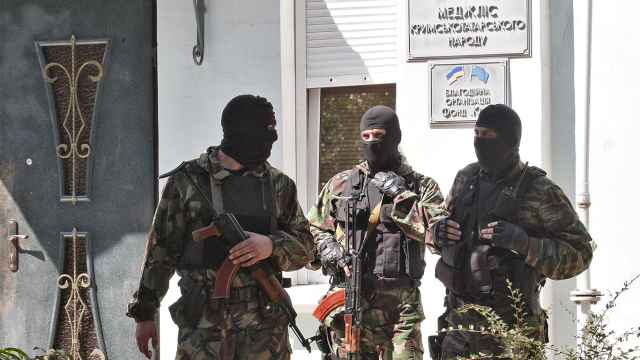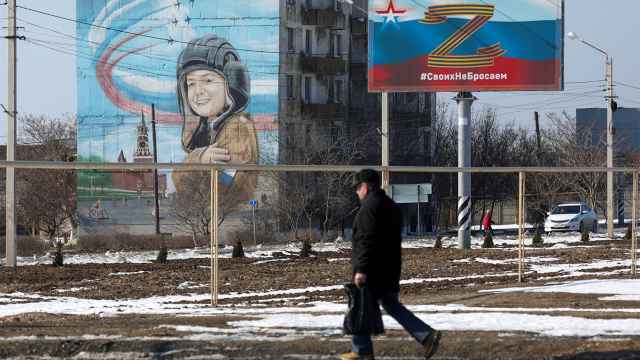Leather-clad bikers with Russian national flags joined motorists driving for the first time across a newly-opened bridge linking Crimea with Russia on Wednesday.
President Vladimir Putin on Tuesday unveiled the new bridge to the Crimean peninsula, which Russia annexed from Ukraine in 2014. He chatted to workmen in overalls and drove a heavy, orange truck across the bridge's 19 kilometers length.
On Wednesday, the road was open to the public. Some local residents on the Crimean side of the bridge waved from the roadside as a convoy of bikers, among them the leader of a pro-Kremlin biker group, tooted their horns on their way onto the peninsula.
Some Russians have dubbed the road-and-rail bridge designed to link Crimea into Russia's transport network "Putin's bridge."
Russia's annexation of Crimea from Ukraine in 2014, drew sanctions and prompted a deterioration in ties with the West. Many in Russia saw the move as restoring Moscow's rule over a historically Russian region.
"The Crimea bridge is a link," said Andrey Merkulov, a resident from Sevastopol at the bridge on the Crimean side. "It is the greatness and might of my country. It's yet more proof of this might and greatness."
Some Crimean residents said they had driven through the night from the peninsula's biggest city, Sevastopol, to attend what they described as a historic moment.
"We came to participate in the opening (of the bridge), to drive on it for the first time," said Aleksandr Karavayev, a resident of Sevastopol.
In Kiev, Ukrainian President Petro Poroshenko said on Tuesday the bridge was illegal. The European Union and the United States also used the opening of the bridge to condemn the annexation of Crimea.
A Message from The Moscow Times:
Dear readers,
We are facing unprecedented challenges. Russia's Prosecutor General's Office has designated The Moscow Times as an "undesirable" organization, criminalizing our work and putting our staff at risk of prosecution. This follows our earlier unjust labeling as a "foreign agent."
These actions are direct attempts to silence independent journalism in Russia. The authorities claim our work "discredits the decisions of the Russian leadership." We see things differently: we strive to provide accurate, unbiased reporting on Russia.
We, the journalists of The Moscow Times, refuse to be silenced. But to continue our work, we need your help.
Your support, no matter how small, makes a world of difference. If you can, please support us monthly starting from just $2. It's quick to set up, and every contribution makes a significant impact.
By supporting The Moscow Times, you're defending open, independent journalism in the face of repression. Thank you for standing with us.
Remind me later.






